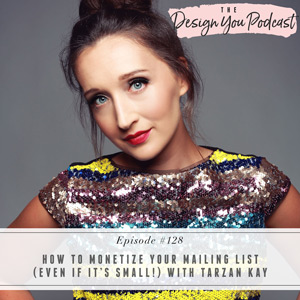
How often do you worry that your mailing list or following is too small to make money? This has been a major year of awakening and one of the biggest realizations for many is that more is not always more. Having more subscribers doesn’t always equal more money! Email marketing expert Tarzan Kay joins us on the podcast this week to tell us why we can all be maximizing what we already have.
Tarzan Kay is a master of email marketing and former copywriter-for-hire who specializes in fun-to-read, more-addictive-than-Game-of-Thrones email copy. She helps freelancers attract better clients who’ll reach deeper into their pockets to pay for top-quality services and she joins us today to show us how building and nurturing quality connections will enable us to generate sales from that so-called tiny list.
Tune in this week where we’ll discuss the importance of connection, personality, and authenticity in email marketing. We’ll learn how making one small mindset shift can unlock a world of opportunity and why we should be enjoying the benefits of having a smaller mailing list, rather than dismissing them. We need to sign up for the journey, not the destination, and there’s nothing wrong with starting small. Get ready to make some money – we’re going to show you a whole new way to think about your mailing list!
If you want to keep this conversation going, you have to join my free Design You Podcast community on Facebook. We have great conversations over there about the podcast episodes and our podcast guests are in there too! So head on over and I’ll see you there!





